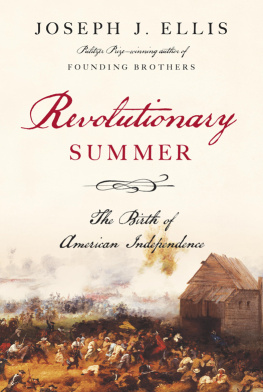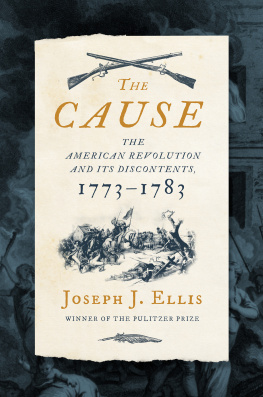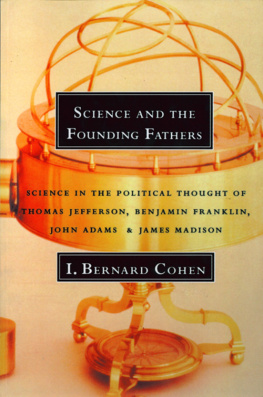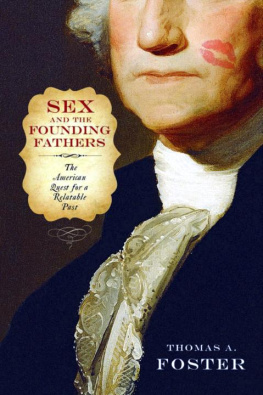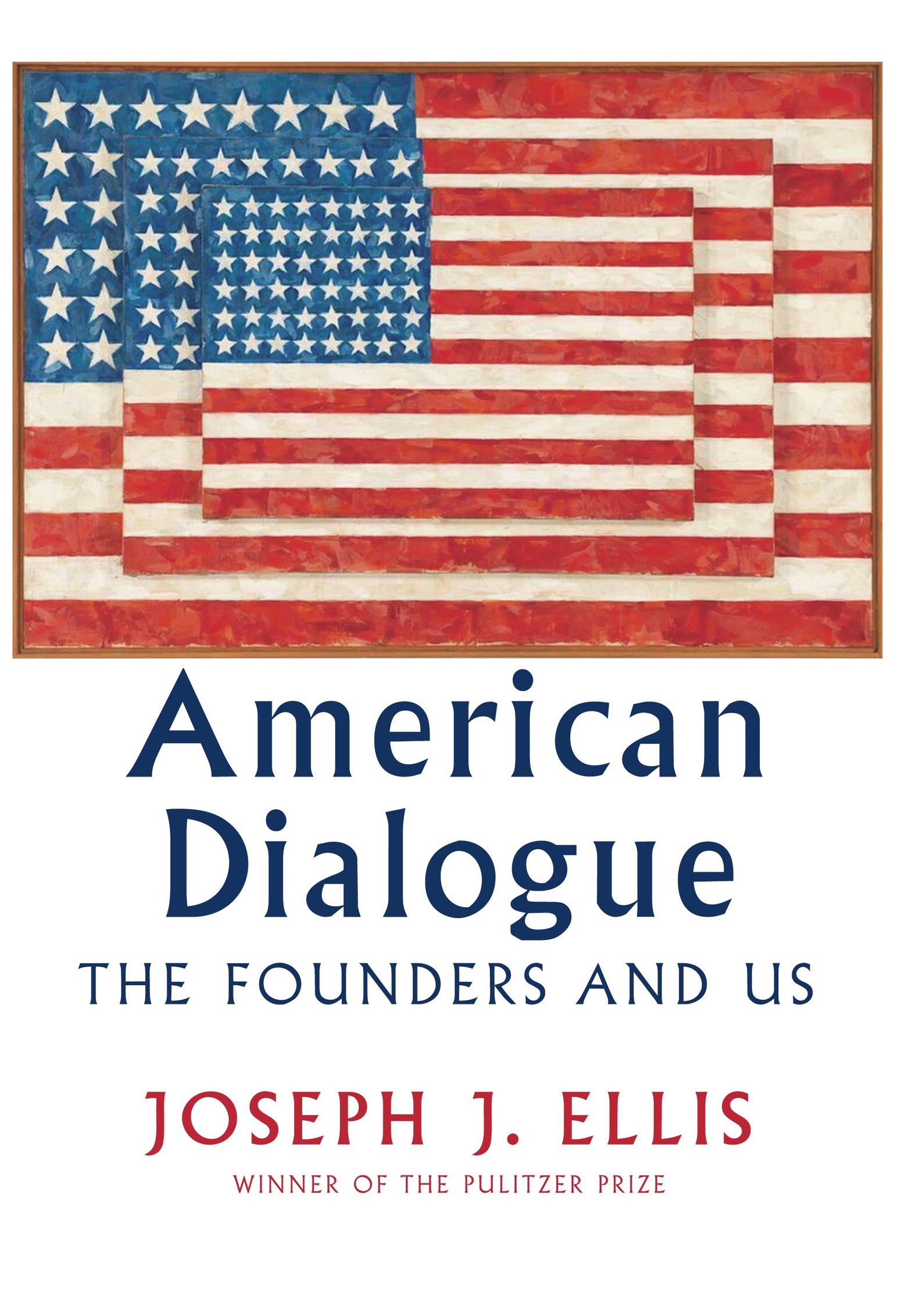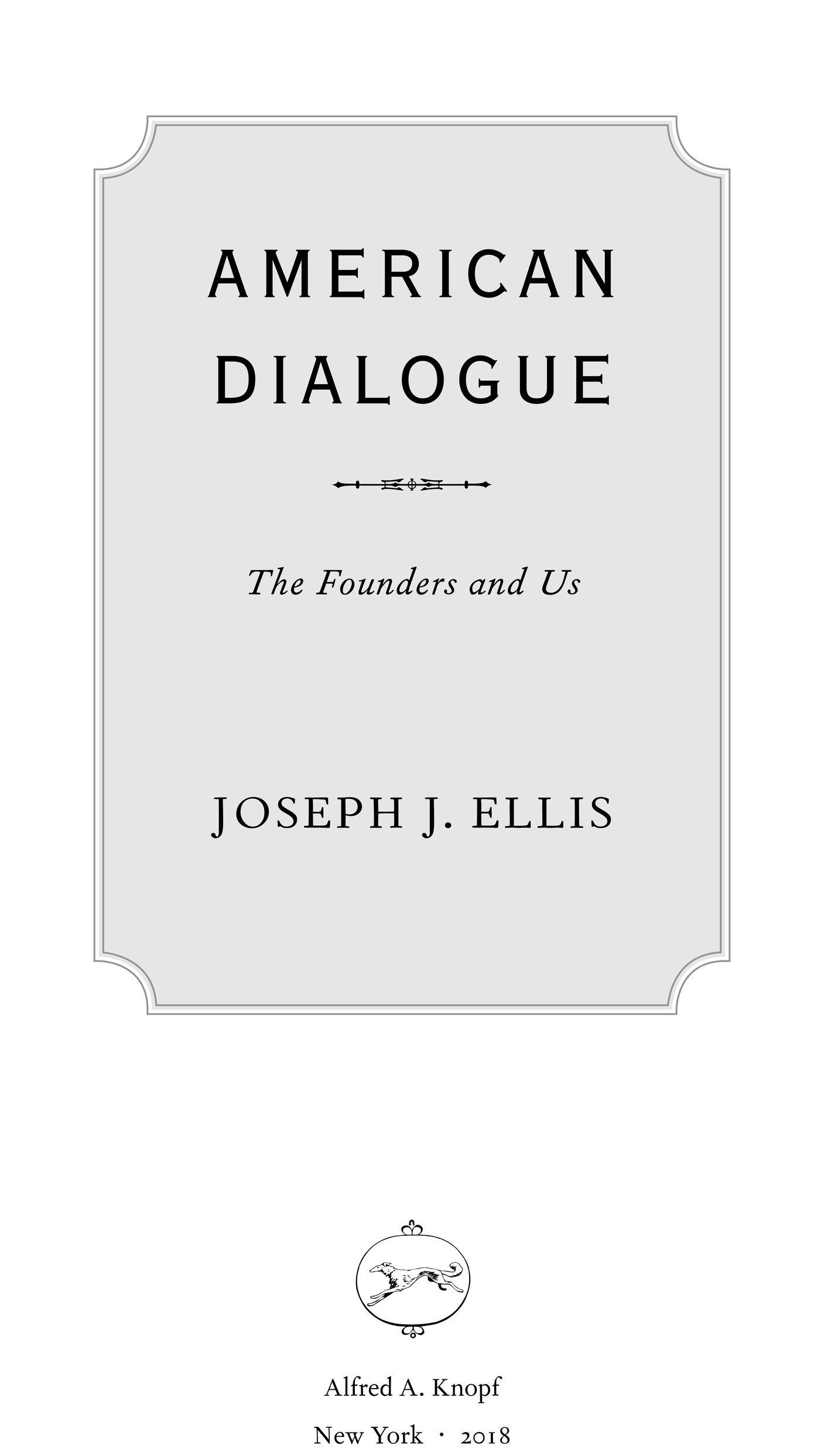ALSO BY JOSEPH J. ELLIS
The Quartet: Orchestrating the Second American Revolution, 1783 1789
Revolutionary Summer: The Birth of American Independence
First Family: Abigail and John Adams
American Creation: Triumphs and Tragedies at the Founding of the Republic
His Excellency: George Washington
Founding Brothers: The Revolutionary Generation
American Sphinx: The Character of Thomas Jefferson
Passionate Sage: The Character and Legacy of John Adams
After the Revolution: Profiles of Early American Culture
School for Soldiers: West Point and the Profession of Arms (with Robert Moore)
The New England Mind in Translation
THIS IS A BORZOI BOOK PUBLISHED BY ALFRED A. KNOPF
Copyright 2018 by Joseph J. Ellis
All rights reserved. Published in the United States by Alfred A. Knopf, a division of Penguin Random House LLC, New York, and distributed in Canada by Random House of Canada, a division of Penguin Random House Canada Limited, Toronto.
www.aaknopf.com
Knopf, Borzoi Books, and the colophon are registered trademarks of Penguin Random House LLC.
Library of Congress Cataloging-in-Publication Data
Names: Ellis, Joseph J., author.
Title: American Dialogue : The Founders and Us / Joseph J. Ellis.
Description: New York : Knopf, 2018.
Identifiers: LCCN 2017050340 (print) | LCCN 2018009098 (ebook) | ISBN 9780385353427 (hardcover) | ISBN 9780385353434 (ebook)
Subjects: LCSH: Political cultureUnited StatesHistory. | Founding Fathers of the United States. | United StatesPolitics and government17751783Philosophy. | United StatesPolitics and government2017 Philosophy. | BISAC: HISTORY / United States / Revolutionary Period (17751800). | POLITICAL SCIENCE / History & Theory. | HISTORY / Revolutionary.
Classification: LCC E183.E436 2018 (print) | LCC E183 (ebook) | DDC 973.3dc23
LC record available at https://lccn.loc.gov/2017050340
Ebook ISBN9780385353434
Cover image: Three Flags, 1958, by Jasper Johns. Encaustic on canvas (three panels) Jasper Johns/Licensed by VAGA, New York, NY; Print: Whitney Museum of American Art, New York, USA/Bridgeman Images
Cover design by Carol Devine Carson
v5.3.2
ep
In memory of Elting Morison, who trusted his questions and his students with a graceful patience I always admired but never achieved
This is probably all one can ask of history, and the history of ideas in particular: not to resolve issues, but to raise the level of the debate.
Albert O. Hirschman, The Passions and the Interests: Arguments for Capitalism Before ItsTriumph ( 1977 )
So we beat on, boats against the current, borne back ceaselessly into the past.
F. Scott Fitzgerald, The Great Gatsby ( 1925 )
Contents
PREFACE
My Self-Evident Truth
History is always unfinished in the sense that the future always uses its past in new ways.
Peter Gay, Style in History (1974)
Self-evident truths are especially alluring because, by definition, no one needs to explain why they are true. The most famous example of this lovely paradox, which gave the term its name, is the second paragraph in the Declaration of Independence (i.e., We hold these truths to be self-evident), where Thomas Jefferson surreptitiously embedded the creedal statement of the American promise.
The ironies abound, since Jefferson almost certainly did not know he was drafting the American Creed, and subsequent generations worshipped his words for reasons different than he intended. Moreover, his initial draft described the truths as sacred and undeniable, and it was probably Benjamin Franklin who suggested the change to self-evident. But in the end, such nettlesome details have proven powerless against the sweeping influence of Jeffersons message, which defined the terms of the liberal tradition in American history.
My professional life as a writer and teacher of American history has been informed by another self-evident truth. As I try to put it into words, I worry that the very act of self-conscious articulation might drain away the unconscious magic of my working assumption and expose it as an illusion. But let me try. It goes like this: The study of history is an ongoing conversation between past and present from which we all have much to learn.
There, having said it, I can see that the formulation is helpfully vague. It does not dictate what we can learn and therefore casts a wide net that gathers in a messy variety of both personal and public lessons. Most of my experience comes from forty-plus years of teaching in a liberal arts college, where there is less distance between students and faculty. In such schools communication does not end with graduation but lives on in a feedback loop about the relevance and irrelevance of what had been learned years ago.
The dominant pattern was a random and wholly unpredictable kind of relevance. There was the Chinese student who had done a research paper for me on the Massachusetts Constitution, which was drafted single-handedly by John Adams. This served as the inspiration, so she claimed, for her work back in Shanghai, writing a putative constitution for post-communist China. At her twenty-fifth reunion, another student told me that her career as a corporate executive had been influenced by two lectures on the Civil War, one from the northern, the other from the southern perspective, which helped her to think ironically. Several former students, both women and men, reported that their efforts to negotiate the inescapable tension between career and family were informed by their reading of Abigail Adamss letters, citing most especially her indomitable resilience.
Such examples suggest that I was not completely fooling myself in believing that history has something to teach us all, even though it is impossible to know at the moment of learning just what that something might be. Self-conscious attempts to teach or preach relevance in history are therefore unnecessary, because the connection between then and now is embedded in the enterprise, fated to emerge in the future in unforeseeable ways. In that sense, reading history is like expanding your memory further back in time, and the more history you learn, the larger the memory bank you can draw on when life takes a turn for which you are otherwise unprepared.

Obviously, a few reassuring testimonials from former students do not a compelling case make. But since my belief in historys utility was an unquestioned article of faith, it did not require overwhelming evidence, only sufficient support to sustain its credibility. And on that score the historical record provided several dramatic illustrations of a usable past that caught my eye. My two favorite examples featured John Adams during the American Revolution and Abraham Lincoln on the issue of slavery.
In June 1776 Adams wrote to several friends in Boston, asking them to scour the Harvard library for books on military history, especially accounts of the Peloponnesian and Punic wars. He had just been appointed head of the Board of War and Ordnance, effectively making him secretary of war, a post for which he freely admitted he was wholly unprepared. He decided to give himself a crash course on how to manage an army.


